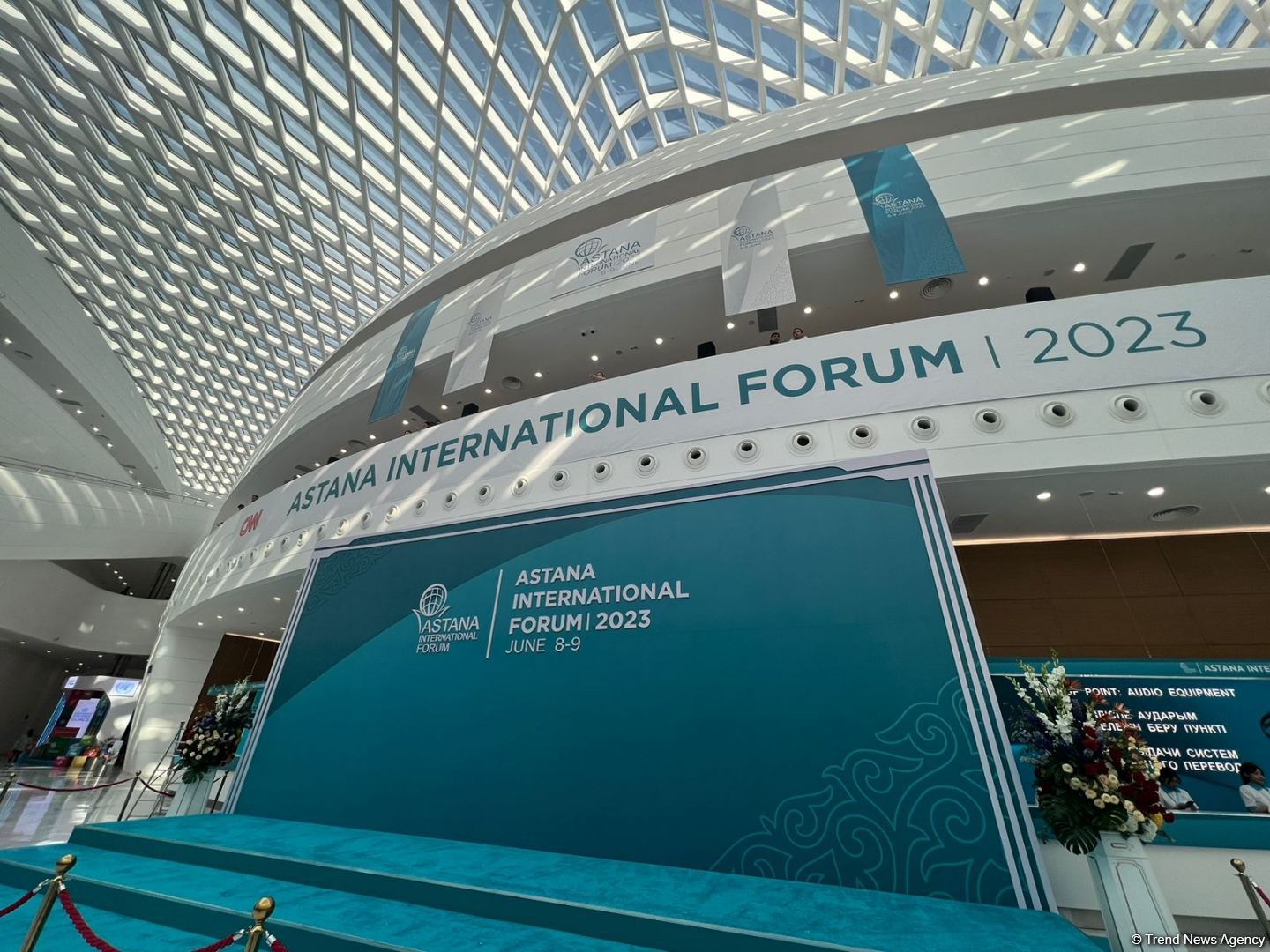BAKU, Azerbaijan, June 16. Kazakhstan, having successfully hosted the Astana International Forum (AIF 2023) on June 8-9, has unveiled a new diplomatic endeavor focused on promoting dialogue among global leaders. With the aim of amplifying voices for peace, progress, and solidarity, this initiative is particularly significant in a time characterized by heightened polarization and unprecedented geopolitical divisions across the globe.
The agenda of the forum was extensive, encompassing a wide range of topics including food security, water management, capital flows, the role of the United Nations, and economic integration.
As the leading economy of Central Asia, Kazakhstan, is strengthening its economic connections with various nations, implementing numerous domestic reforms, and positioning itself as a pragmatic international player that seeks friendly relations with all countries. It is also actively working on multiple fronts to consolidate its position as a significant hub for trade, transportation, and finance, strategically located between the East and the West.
“Despite geopolitical upheavals Kazakhstan keeps serving as an economic engine in and for Central Asia. We continue to attract significant foreign investment and provide exceptional conditions to do business in Kazakhstan,” President Tokayev said in his keynote speech at the opening ceremony of the AIF 2023.
With numerous countries developing sustainability and decarbonization strategies to achieve climate goals, Kazakhstan, a major energy producer, aims to actively contribute to the global solution. The country is committed to attracting foreign investors to assist in the implementation of a new green portfolio, demonstrating its dedication to environmentally friendly initiatives.
It may be considered overly simplistic to assume that green energy has already become a significant component of global energy security. However, it would be even more shortsighted to perceive this as a passing fad that will soon lose its relevance. The truth is that the energy landscape has already undergone a transformation, and any nation reliant on oil and gas exports that fails to acknowledge this shift will find itself falling behind.
In his keynote speech, President Kassym-Jomart Tokayev has also touched upon this issue as well, noting that Kazakhstan has signed the Paris Agreement, committing to become carbon neutral by 2060. The first milestone is to achieve 15-percent capacity of renewables by 2030. Furthermore, in order to reach carbon neutrality, Kazakhstan has set a target to produce 10 GW of clean energy by 2035. For this, the country is carrying out various projects, mainly in solar and wind power, taking into account the vast potential it has in these fields, with such energy giants as the UAE's Masdar, Saudi Arabia's ACWA Power, TotalEnergies, China Power and others.
"Kazakhstan could offer tremendous green economy opportunities and finally emerge as a renewable energy hub. However, time is not on our side. To decarbonize and build green economies at the necessary speed, we need resources and partnerships," President Tokayev noted.
In this regard, both Azerbaijan and Kazakhstan have embarked on a significant shift in their energy policies, positioning themselves as energy-exporting nations rather than simply relying on hydrocarbon exports.
Azerbaijan stands out from other countries due to its proactive approach in implementing green energy projects across the region. While being recognized as a dependable provider of traditional resources, Azerbaijan's aspirations extend beyond that. The country's ambitious endeavors to export green energy are gaining traction and are being translated into tangible initiatives.
The inclusion of green energy as a crucial aspect on the agendas of Baku and Astana facilitates the establishment of long-term cooperation in this field. The main point to emphasize is that the energy cooperation between Baku and Astana remains ongoing and holds great potential for growth.
For instance, Minister of Energy of Azerbaijan Parviz Shahbazov has invited Kazakhstani companies to participate in green energy projects in Azerbaijan, as he spoke at the the panel discussion within the Astana International Forum, also noting that Azerbaijan will put 1.8 GW of solar and wind power capacities into operation by 2026.
At the same time, as his Kazakhstani colleague Almassadam Satkaliyev pointed out while speaking at the same panel, both Kazakhstan and Azerbaijan pay great attention to the development of renewable energy projects and are striving to launch exports of green energy to the West.
"In this regard, with our Azerbaijani colleagues, we have already launched the implementation of a high voltage cable project through the bottom of the Caspian Sea. This line will connect Kazakhstan with Türkiye, and then further with Europe," he said.
Azerbaijan and Kazakhstan established a solid groundwork for fostering long-term partnerships several years ago, allowing both countries to sustain their cooperation and progress into the future. Despite the achievements thus far, there remains substantial untapped potential that Azerbaijan and Kazakhstan can explore in the coming years. And platforms like the Astana International Forum play a crucial role in facilitating the development of new business connections and embarking on fresh economic opportunities, making a significant contribution to these endeavors.







